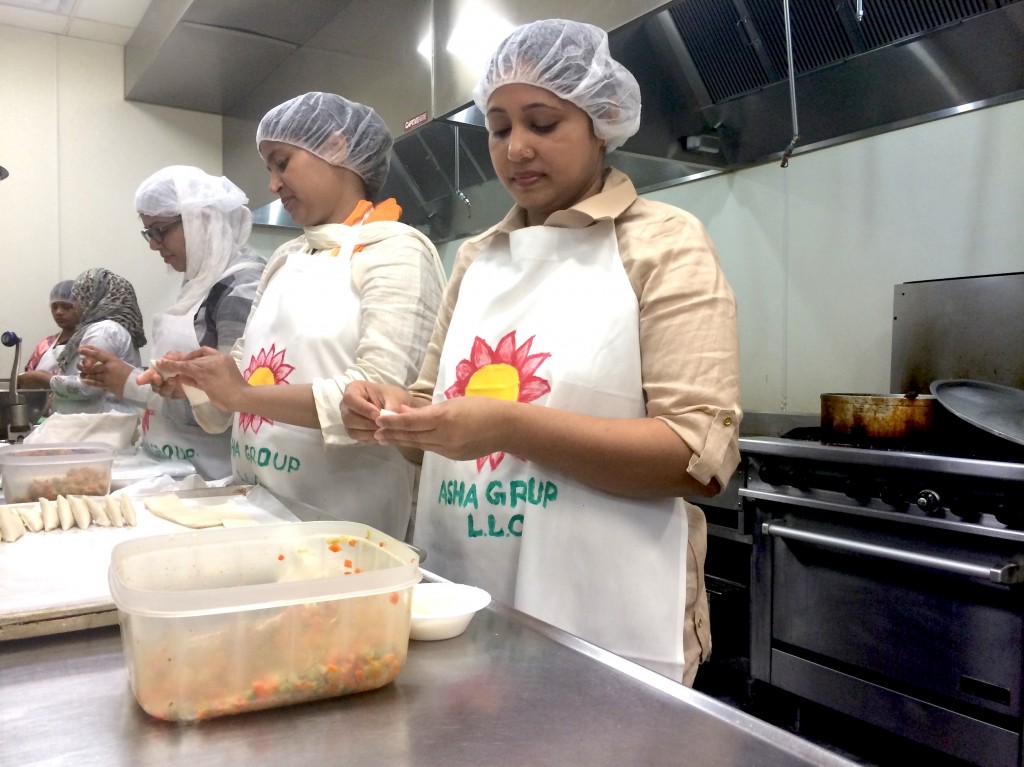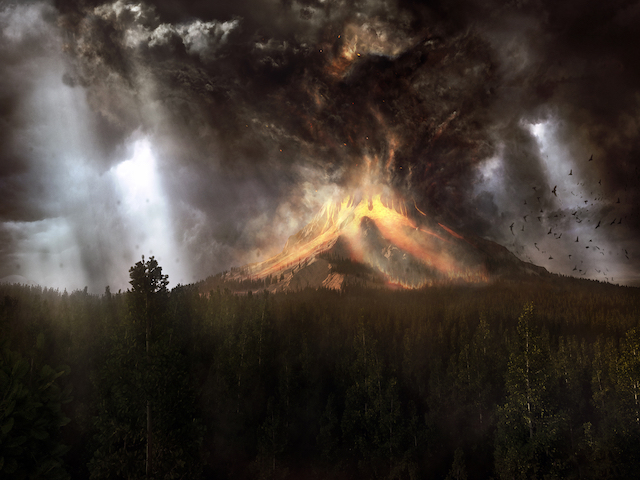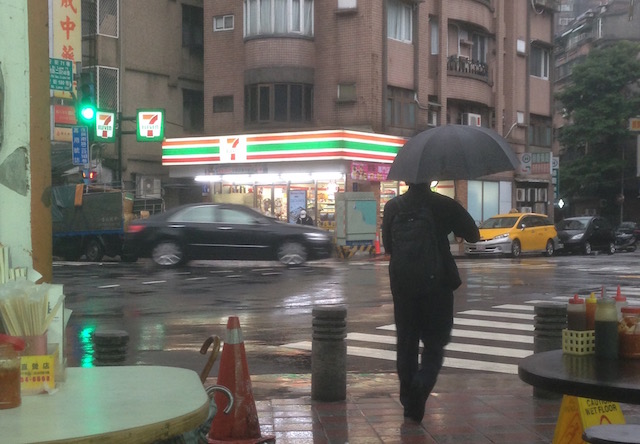I often tagged along with my grandparents down the aisles of Chinese supermarkets. While Grandma stuck to purchasing standard items like Saltines or milk to add to her morning coffee, Grandpa knew the secrets of the dried, preserved goods and vegetables tucked away into the stores’ dusty corners.
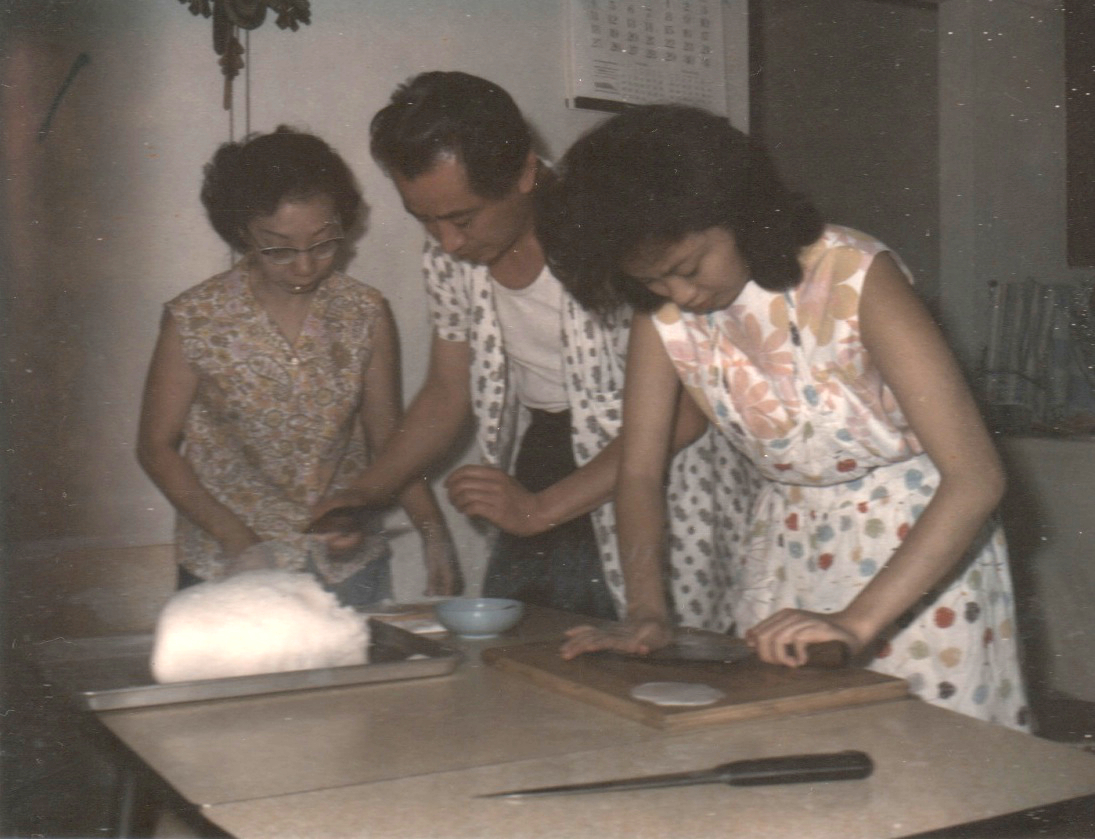
May 12, 2014
[Editor’s Note: Ava Chin’s memoir about growing up in Queens and foraging in the urban landscape of New York will be published tomorrow. Here, we present an exclusive excerpt from her book Eating Wildly.]
Flushing, Queens, 1970s
Cloud ear (Auricularia auricula, A. polytricha)
When I was a kid, there wasn’t anything I liked better than to sit in the mostly concrete courtyard of my mother’s apartment building, digging into the loamy soil with a spoon. Digging revealed a truth that never ceased to amaze me—that the earth was rich in hidden wonders, a veritable storehouse of free goodies: fat, writhing worms; old, tarnished coins; gnarled roots like my grandmother’s arthritic hands. I sometimes sat there for hours, surrounded by elderly neighbors who just shrugged when they saw me, the only grade-schooler in the building, with dirty hands and knees, searching for natural treasures.
One day, I disappeared behind the hedges under the shadow of sycamore trees, my mother talking to a neighbor only a few yards away, her booming laughter and teacher’s voice becoming more distant as I edged around in the shade. It had rained the day before and the earth smelled dark and rich, almost like chocolate. I had distinguished from the blades of grass some- thing taller, more fragrant, wilder—something that resembled green grass gone haywire, like a mad professor’s hair.
I couldn’t have been happier. I had no idea what the plant was called, but I knew it was edible.
When I grabbed the mass of it in both hands and pulled with all my strength and weight, my forearms and thighs straining, the plant came up—bulbs and all—and I was hit by flying soil and the pungent smell of scallions, reminiscent of the kind my grandfather used in my favorite lobster Cantonese dish, which he made every Chinese New Year and on my birthday.
I couldn’t have been happier. I had no idea what the plant was called, but I knew it was edible. Even when my mother yelled, “Put that down!” I was unable to stop marveling at the long chive-like leaves and the oniony scent.
While her back was turned, I snuck back into the hedges and ate it. The green stalks were both sweet and bitter, an intense blend of scallions and garlic.
* * *
My grandfather, a former Toisanese village boy turned Chinese restaurant worker, taught me how to eat. Grandpa spoke an English so informed by the cadence of his native dialect that he didn’t talk so much as bark, so that he often sounded like he was yelling from across a muddy field rather than just across the kitchen table. He had learned to sauté, braise, and sear from the cooks at the various Manhattan restaurants in which he worked. His palate was so diversified that he could make almost anything well. Sometimes it was a whole fish from head to tail—first steamed, then drizzled with a piping-hot medley of ginger, scallions, garlic, and sesame oil. Soy sauce chicken wings dripping in a brown sugar glaze. American fried chicken dipped in a garlic-ginger batter that had my friends sighing with delight—even the ones with hard-core Southern roots often asked for seconds.
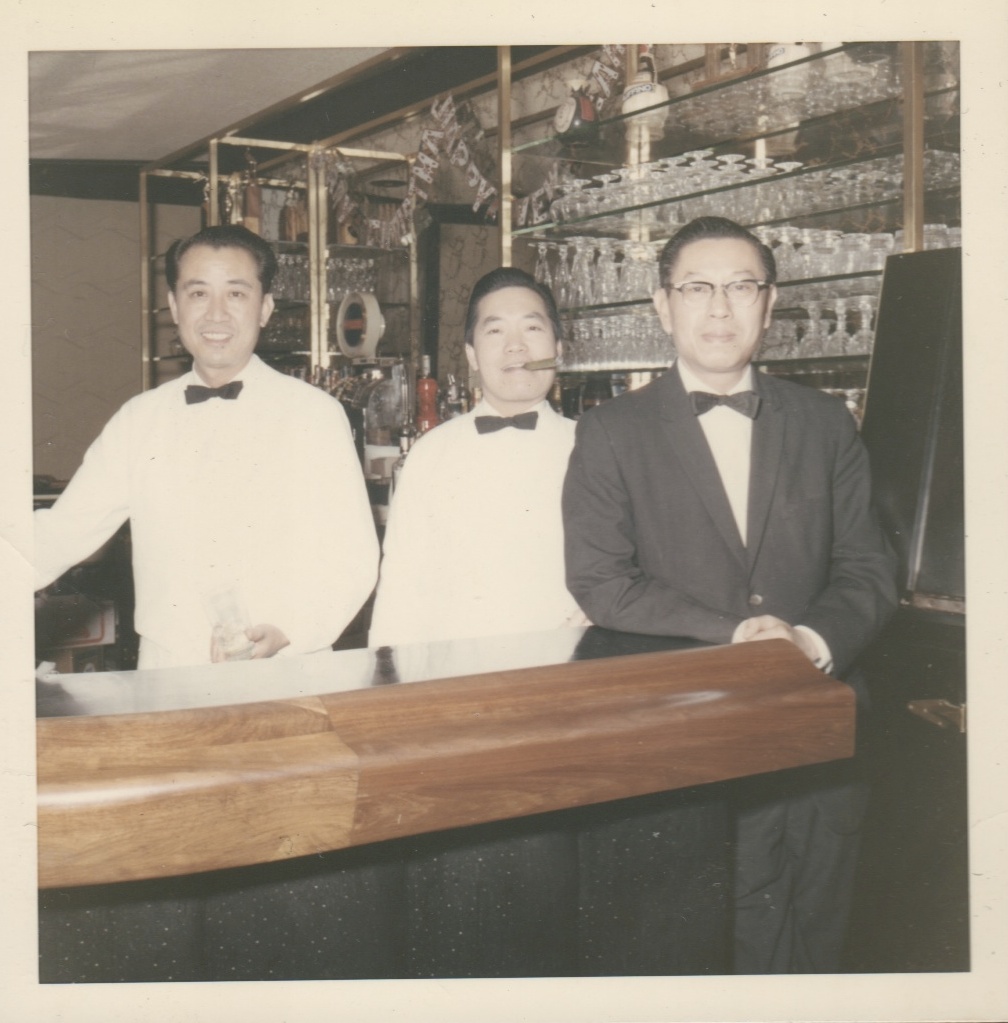
By four years old, I was already cracking open crabs with a nutcracker and devouring lobsters from claw to tail. Even the legs, those tiny crawlers that are often tossed aside for being too slim pickings, revealed a sweet juice as I gnawed on them like teething rings. I learned to eat snails in black bean sauce by teasing them out of their shells with a toothpick—the meat emerging like a coil of dark pasta. (My favorite part, aside from the succulent, silt-colored briny snail, was the little door the size of my pinkie fingernail.) Members of my family claim that I ate anything my grandfather fed me, including fish eyeballs, which I later vehemently denied, although I do have a vague memory of eating something round and gelatinous, with a texture like vanilla pudding.
My grandparents’ home, where my mother often dropped me off on Friday afternoons before her dates, was always filled with the sounds and smells of good food. Late at night, I would often climb out of my grandmother’s queen-sized bed in a half- daze, awoken by the zing! of Grandpa sharpening his cleaver before pounding the chopping block. I’d plop myself down at the kitchen table where my grandfather, home from closing the restaurant, would share his meals with me: a slab of perfectly seared liver just out of the pan, or sizzling flash-fried bok choy with shiitakes.
Members of my family claim that I ate anything my grandfather fed me, including fish eyeballs, which I later vehemently denied, although I do have a vague memory of eating something round and gelatinous, with a texture like vanilla pudding.
Saturday mornings, the house would be filled with the smell of sautéed garlic, and before I even entered the kitchen, I was salivating, knowing that something good—a slow-cooked tomato sauce, or a Chinese winter melon soup—was simmering on the stove. My grandfather started cooking dinner early in the morning so it would be ready to set down at six o’clock, which also conveniently allowed him to slip away to the race- track for a few hours while everything was percolating.
Even though dinner would often be only my grandparents and myself—my extended family lived miles away in different parts of suburban Long Island—every weekend was an excuse for an elaborate feast. Lobster Cantonese with fresh scallions covered in lacy egg whites and ground pork. Velvety corn soup with thin-sliced pork and minced onions.
I always sat between my grandparents, the welcome recipient of giant spoonfuls of food landing on my plate from either direction. Sometimes my mother joined us, as my grandparents heaped hunks of de-shelled lobster or crabmeat in front of me. When she was there, my mother regarded the parade of delicacies surrounding me like a jealous older sister—she’d grown up the baby girl under two older brothers, and disliked my usurping her role in the family—but mostly, my mother was out on dates, trying to find a good-enough man who wouldn’t walk away.
A stunner as a newborn (“Even on the bus, everyone wanted to hold her,” my grandmother liked to recount), my mother had the pick of the litter when she bloomed onto the 1960s Chinese American dating scene, wearing handmade taffeta dresses fitted with modest necklines and full, poofy skirts. She had the kind of wide-eyed, apple-cheeked, bee-stung-lips type of beauty that attracted men in droves.
“Eat!” Grandpa ordered in his deeply resonant voice, placing individual bowls of rice down on the table. He put a heaping spoonful of food onto mine, making an indent into my mound of fan with the back of the serving spoon so the cloud ear wouldn’t fall off. “It’ll make you beautiful.”
By the time she was crowned Miss Chinatown in her early twenties, my mother had taken up with my father, an extremely charming lawyer and divorced dad who was running for State Assembly. Stanley was closer to my grandparents’ age than to hers, and my grandfather, a bit of a former playboy himself, recognized him as an entitled member of the club. “That guy—” my grandfather would always say, shaking his head and never finishing the sentence, instead throwing more salt or scallions into whatever pot or pan he was standing over.
My father left us when my mom was pregnant with me, and we never saw him again, except for the times she took him to court for child support. We lived with my grandparents until I was two, before my mother’s brief marriage to my stepfather. After that came the Era of the Boyfriends. Like my father and stepfather, these men were tall and good-looking, guys who stood out from the crowds at bars and nightclubs.
“I want to find a daddy for you,” she sometimes said, and for a while, when I was very young, I tried to win them over too. Sometimes I stretched an old, oversized sweater over my knees and mimicked the noises and movements of an owl, cooing “Who?” to the hoots and howls of my mother and her latest boyfriend as they drank vodka cocktails on the couch. I waved my report cards under their noses, or showed off my art projects, dropping a trail of gold glitter on the floor.
But as the years went by, I eventually grew a thick skin to my mother’s love life, thankful it left me in the weekend company of my grandparents and copious amounts of food.
“What’s this called?” I asked one evening at the kitchen table, when a platter of beef and Chinese broccoli—plus a mysterious dark ingredient that resembled a squiggly mass of seaweed— was placed before me.
“Choy sum ngàuh yuk,” my grandmother said, pushing her chair up toward the table.
“No,” I said, picking out the brown object the size of a dime with my chopsticks, “this.”
“It’s a cloud ear fungus,” my grandmother said. “Wun yee. Sometimes called tree ear.” Then, pointing with a bony finger that was becoming more and more arthritic with age, “See the shape?”
“Does it grow in the woods or the sea?” I asked, sniffing it. It only smelled like my grandfather’s dark, savory sauce.
“Eat!” Grandpa ordered in his deeply resonant voice, placing individual bowls of rice down on the table. He put a heaping spoonful of food onto mine, making an indent into my mound of fan with the back of the serving spoon so the cloud ear wouldn’t fall off. “It’ll make you beautiful.”
Whenever my cousins came over for dinner, I even ate their leftovers.
In our family, beauty was an asset, even above my grand- mother’s keen intelligence and my mother’s degrees. (“Men don’t make passes at girls who wear glasses,” said my wire- framed-glasses-wearing grandmother, who loved quoting Dorothy Parker.) If all it took to look like my mother instead of my good-for-nothing father was eating an unusual-looking fungus, then I wanted in. I quickly dug into my food.
The cloud ear was cool and malleable—similar to abalone or jellyfish—but like the way a good diamond had clarity and was colorless, on its own the wun yee was mild and flavorless. Mostly, I liked the crunch.
Every meal after that, whenever wun yee was served, I made certain to eat it. Whenever my cousins came over for dinner, I even ate their leftovers.
* * *
One summer, my day camp took us out on a fishing boat, where we spent hours off the coasts of Brooklyn and New Jersey angling for striped bass and fluke. I caught nothing all morning except winged sea robins that barked as I tossed them back into the water. But just before we headed back to shore, something large and heavy tugged on my line. I quickly reeled it in. After a few heart-thumping moments, a glistening fluke emerged, flapping in the afternoon light, spraying me and my fellow campers with salt water. It was large enough to keep.
I brought my fish home to my grandparents, who made a big fuss after unwrapping it in the kitchen.
But as we sat there surrounding the plate, digging into its white flakey goodness with our chopsticks, the fish melting in my mouth and combining with the crunchiness of my grandfather’s batter, I felt like I was tasting a bit of heaven.
Instead of preparing it the Chinese way—the whole fish from head to tail, steamed, then sautéed in hot oil and aromatics—my grandfather covered it in batter and dunked it in the fryer. Ten minutes later, it appeared on our table, a fillet of fluke, with a side of ketchup.
At first, I was disappointed. It looked so tiny on the plate, like a perfect square of fried cheese.
But as we sat there surrounding the plate, digging into its white flakey goodness with our chopsticks, the fish melting in my mouth and combining with the crunchiness of my grandfather’s batter, I felt like I was tasting a bit of heaven.
Here was a fluke that I’d caught with my own hands, off the cold, icy waters of the city. The ocean, like the soil, was alive with goodies, and at that moment, watching my grandparents digging into the small fillet, which was disappearing before my very eyes, I felt something akin to pride.
* * *
When I wasn’t busy devouring their food, I often tagged along with my grandparents down the aisles of Chinese supermarkets. While Grandma stuck to purchasing standard items like Saltines or milk to add to her morning coffee, Grandpa knew the secrets of the dried, preserved goods and vegetables tucked away into the stores’ dusty corners.
The darker, more foresty-smelling mushrooms (dong gu), which were collected in bins and cost five times more than the packets of fungi that packed the aisles, were worth the price for their better flavor and immunity-boosting properties; the glass jars of loose green teas were good for keeping one mentally sharp, whereas the red teas were renowned for aiding digestion, which is why we drank them by the teapot-full with dim sum; dried chrysanthemum blossoms were good for headaches; the red hawthorn berries, which were pressed into the candies I adored sucking on, were beneficial for the heart; and then there were the giant jars of pungent dong quai—the “female gin- seng”—which lined the medicine shelves like pieces of twisted ivory and were beneficial for when I became a woman.
I’m not sure how Grandpa knew what he knew—whether his parents had taught him or he’d learned from the cooks at the restaurant—but I just chalked it up to his being more inherently Chinese than I was and that somehow the knowledge came with the territory.
One day, I watched my grandfather sifting through one of the giant bins of mushrooms at the front of the store. “What’s that?” I asked, peering into the waist-high container.
“Dong gu,” he said, sifting through the dark dried shiitakes. “The thick ones are good, with the cracked tops. Smell. Good.” I leaned over his hands and inhaled. They were earthy and deeply fragrant.
I followed my grandfather over to another bin.
“Wun yee,” he said, pulling out a few dark squiggly bits. “Cloud ear.”
The cloud ears were hard and velvety and looked like Shrinky Dinks after being pulled out of the oven. One side was silvery white, the other the color of black ink. I wasn’t expecting this: in our stir-fries they were always soft, and almost translucent—and when held up to the light, a deep amber.
So that’s what they look like, I thought, staring at the bin full of fungi, with its handwritten $20/lb. sign written in Magic Marker.
* * *
On weekends, I searched our apartment the same way that I dug into the earth, looking for clues of my father. Among the books, the magazines, and the antique vases and ashtrays my mother collected throughout the years, these were the things he left behind: A stuffed koala bear he’d given to my mother early on in their courtship, which I slept with and drooled on at night, clutching its matted fur and plastic paws. A sexy diamond-cut engagement ring that I saw in my mother’s jewelry box once, before she hawked it to pay our rent. A tiny and unembellished gold infant cross, which had been sent along by my paternal grandmother, whom I’d never met.
The only photograph of him that we had was a 31/2-by- 31/2-inch color square taken with an old Brownie camera. My mother showed it to me one evening while we were sitting around the living room watching the six o’clock news.
On weekends, I searched our apartment the same way that I dug into the earth, looking for clues of my father.
Mom was tense—for the past week, her full mouth had been drawn into a line so tight it appeared as if rendered by an artist’s brush, and the stereo from which she enjoyed blast- ing R&B music was silent. She stomped around the apartment slamming objects and burning nearly every meal. I wasn’t sure why she was so upset until I overheard her complaining to a friend on the phone that my father owed back payments on child support.
“This is your father,” she said, her normally rich voice sound- ing low and clipped.
In the photograph, Stanley was lean and handsome, sitting with his legs crossed on my grandparents’ recliner. The camera had caught him relaxed and mid-laugh, his arms spread out onto the chair rests. While growing up, I’d heard the rumors that we looked alike, and it was true: we had the same-shaped face and maple-syrup eye color, and if I looked at the picture from out of the corner of my vision, I might have thought I was looking at an older version of myself.
I reached for the photo, but Mom was quicker.
“Take a good look,” she said, holding the picture over a ceramic ashtray before striking a tall kitchen match with her long, thin fingers. Her hands were shaking—whether it was from nerves or excitement, I couldn’t tell—but the perfect ovals of her fingernails were illuminated when the match finally lit.
Before I could protest, the photograph caught fire—first crinkling up around the edges, before the whole picture warped and shrank in the turbulence of the flame. Mom’s eyes were glowing, reflecting the reddish-orange light, and her mouth was back to its satisfied pout, though tension still lingered around the edges. The flame consumed the paper in seconds, until it came dangerously close to her fingers. She dropped it into the ashtray, and we watched the entire image of my father dissolve into a hot curl of smoke.
“That’s that,” she said, wiping her hands against each other, as if wiping them clean of the whole affair.
* * *
“What was he like?” I asked my grandmother one evening as I was pinning up her hair into rollers. Grandma was the only one in the family who would talk to me about my father.
“He was tall and good-looking,” Grandma said, watching the end of her favorite television program. “He comes from a big family—too bad they don’t look you up.”
As an only child, I longed for a big family, and tried to envision what it would be like to be part of a big clan.
“Your mother was young and beautiful. She was never the same after what your father did to her,” Grandma said, as the credits rolled across her glasses. “He used her and then threw her away.” Then, sighing, “Oh well, what can you do?”
I always wanted to cry after these conversations, where I felt the mix of sadness and guilt settle in my stomach like the glasses of Scotch and watery ice my grandfather poured for himself at the end of every workweek. Instead, I rooted around the bottom of the curler box.

